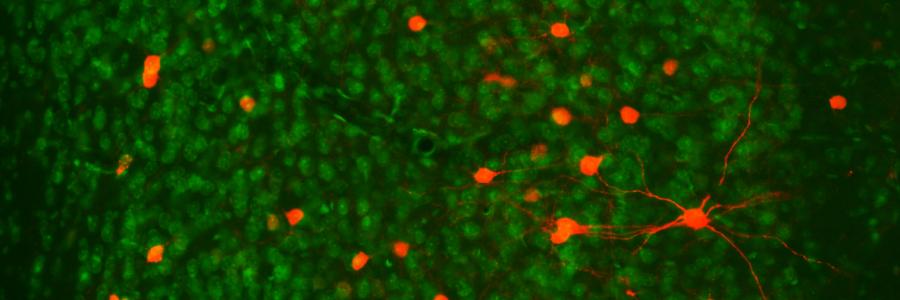
Erasing alcohol memories to prevent relapse
NWO awarded Michel van den Oever, team leader of the ‘Memory Circuits’ group at the CNCR, with a Vidi grant of 800.000 euro.
Michel van den Oever studies how specific memories are encoded by small populations of neurons (so called “neuronal ensembles” or “engrams”) in the brain. The focus of his Vidi project is on neuronal ensembles that encode alcohol memories. Treatment of alcohol addiction is often hampered due to frequent relapse triggered by environmental stimuli (cues: beer bottles, bars, specific friends etc.) that remind an addict of the rewarding effects of alcohol. “Investigating how alcohol-associated cues evoke memory retrieval and relapse is of utmost importance for design of relapse intervention strategies. Therefore, it is critical to identify the specific cells and their neurobiological properties that support cue-evoked relapse to alcohol seeking”. Through a combination of pharmacogenetics, optogenetics and cell-specific proteomics technology, Van den Oever aims to reveal how an alcohol memory is stored and retrieved by neuronal ensembles in the prefrontal cortex.
Van den Oever: “we have recently discovered that cue-evoked relapse to alcohol seeking is regulated by only a fraction of neurons in the prefrontal cortex that become highly active upon retrieval of the alcohol memory. A crucial next step is to understand what makes these cells unique. In other words, do these activated neurons differ in their molecular and physiological properties from the majority of non-activated neurons in the prefrontal cortex? Mechanistic insight in how these ensembles encode the alcohol memory provides opportunities to selectively reverse adaptations in these specific neurons and thereby prevent memory retrieval and relapse. In the future, this research may contribute to the design of medical intervention options that erase the learned association between environmental stimuli and the effect of alcohol in individuals with an alcohol use disorder.”